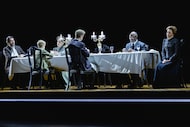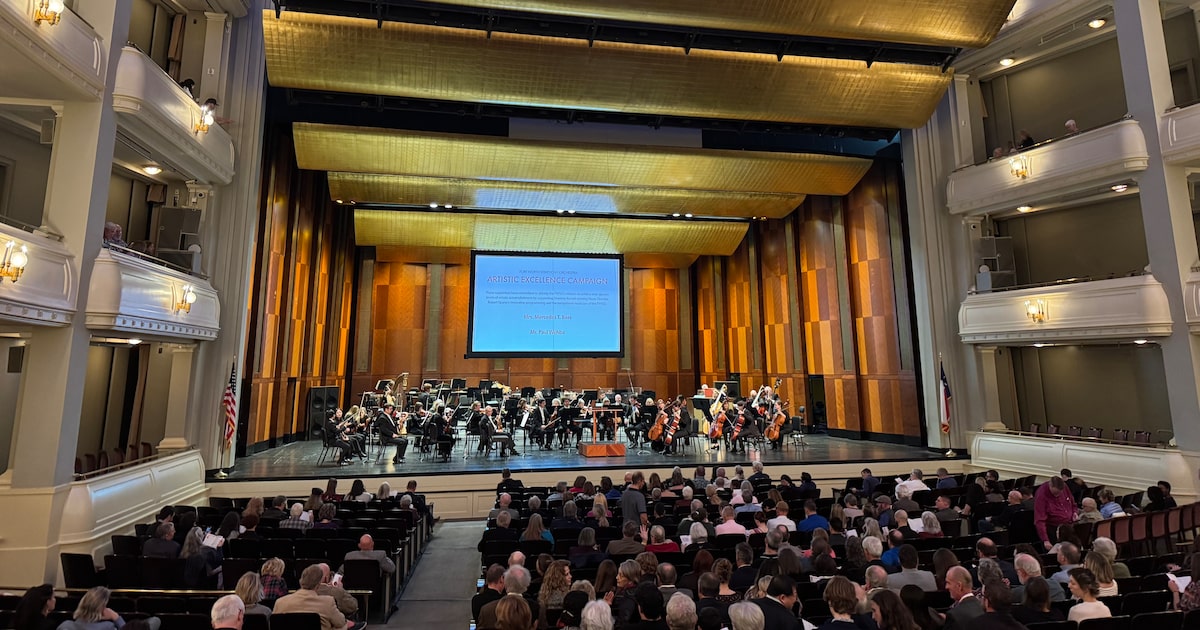FORT WORTH — The best Mahler Fourth Symphony in recent memory happened Friday night at Bass Performance Hall. For which thanks go to the Fort Worth Symphony Orchestra and its principal guest conductor, Jane Glover.
The program’s first half played into Glover’s more familiar profile as a Mozartean: the soprano cantata “Exsultate, jubilate” (with Lauren Snouffer) and the composer’s last piano concerto, No. 27 in B-flat major (with Imogen Cooper). Fine as those performances were, the Mahler was something special.
Oh, sure, there was the occasional spot when flutes or horns were a bit too prominent, and a timpani crescendo got way overdone. But I was reminded again and again what a fine orchestra this has become. And Glover coaxed a performance flawlessly paced, stretching in just the right places, sometimes daringly, yet with a sure overview of structure. The music sounded spontaneous, and yet fastidiously organized.
Between extremes of volume, from sounds at the threshold of audibility to great sonic explosions, a handful of bulges aside, intervening dynamics were carefully proportioned and layered.
News Roundups
As in the Mozart works, the sheer sweetness of violin tones at the beginning of the Mahler was amazing. (I wished only that second violins had been on the right side of the stage, opposite the firsts, as both Mozart and Mahler would have expected.) Other string sections played beautifully, too, especially cellos.
Filling in as concertmaster, Justin Bruns, associate concertmaster of the Atlanta Symphony, dispatched the violin solos with panache. Some in the second movement require switching to a violin tuned a whole step higher for an edgier effect. Playing into longstanding imaginations of Satan as a fiddler, Mahler said the movement could be titled “Death Strikes Up.”
But Satanic mischief doesn’t last. Mahler thought the ensuing Adagio his finest slow movement, and the finale introduces a soprano soloist as a child envisioning heaven as a place of fine food, music and dance. (Translation of the text, from an early-19th-century collection of German folk poetry, was projected on a supertitle screen above the stage.)
Snouffer supplied the right wide-eyed freshness and natural declamation. So she did in “Exsultate, jubilate,” with just a hint of brass in her lyric soprano. (Among her notable previous appearances in the area was as Mélisande in the Dallas Opera’s 2024 Pelléas et Mélisande.)
Related

Cooper, like Glover, is known for her Mozart performances. She provided luminous, graceful pianism in the concerto, subtly leaning into the surprising twists of melody and harmonic implications of the first-movement cadenza. Both she and Glover captured the slow movement’s mystery, both then setting the finale gracefully dancing. The orchestra played beautifully, with strings appropriately reduced here and in the cantata.
Details
Repeats at 7:30 p.m. Saturday and 2 p.m. Sunday at Bass Performance Hall, Fourth and Commerce, Fort Worth. $32.50 to $113. 817-665-6000, fwsymphony.org.
